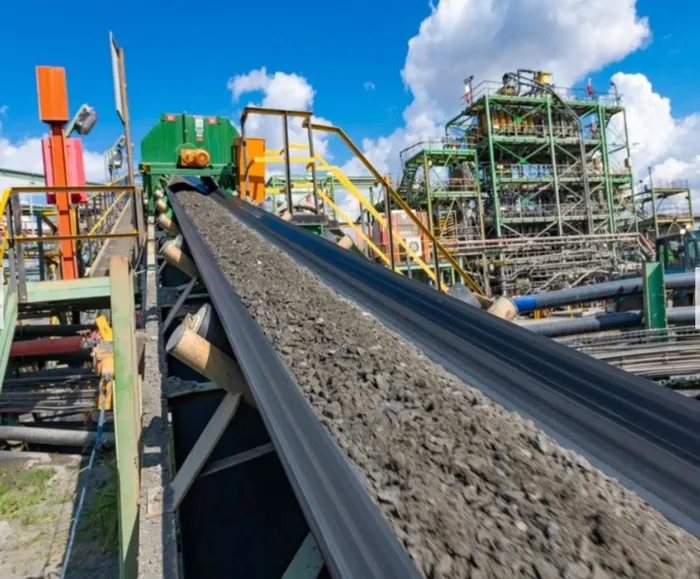Tharisa sees stable PGM prices as chrome demand rebounds amidst trade uncertainties
MINING

The Tharisa mine produces PGM and chromite concentrate. During the quarter to the end of March, Tharisa raised PGM production to 32 500 ounces compared to 29 900 ounces in the same quarter a year earlier.
Image: Supplied
Tawanda Karombo
Phoevos Pouroulis, the CEO of Tharisa said on Thursday that demand for chrome has been rebounding while platinum group metals (PGM) prices in rand terms have stabilised although global trade wars are ocassioning economic uncertainty that could dent demand for some commodities.
Tharisa is a PGM and chrome miner and processor in South Africa.
According to Pouroulis, “chrome has rebounded strongly” as “PGM basket price is relatively stable in rand terms” due to the devaluation of the South African currency.
Nonetheless, the impact of the trade wars on the outlook for global economic growth “is creating an uncertain and volatile environment which may impact on demand” for commodities.
The US government has roiled markets after it introduced tariffs on major global source markets although on Wednesday President Donald Trump said he was pausing these tariffs for 90 days except for China.
“While both PGM and chrome are not subject to US tariffs, the intermediate and final products containing these commodities will be,” said Pouroulis.
During the quarter to the end of March, Tharisa raised PGM production to 32 500 ounces compared to 29 900 ounces in the same quarter a year earlier. The PGM production for the period came at a rougher feed grade of 1.42 grams per ton compared to 1.39 grams per ton a year earlier against a recovery rate of 67.4%.
The company’s chrome production for the same quarter was also higher at 381 000 tons compared to 374 400 tons previously at a slightly lower grade of 16.7%. Tharisa has set a production guidance of between 140 000 ounces and 160 000 ounces for PGMs as well as between 1.65 million tons and to 1.8 million tons for chrome concentrates.
Before the US roiled global markets with its tariffs, Tharisa said PGM prices saw good support as markets realised that the supply demand gap needs price recalibration to ensure future re-balance.
“The impact of the trade tariffs, particularly on the motor trade, on future demand for motor vehicles may impact PGM demand and prices going forward,” explained Tharisa.
Chrome prices have however advanced from pre-December 2024 quarterly lows, with spot trading at $300 per ton. Port stocks are currently at six to eight weeks of inventory levels. At the same time, demand for chrome remains strong, with “logistics pipelines operating” normally.
However, after the US implemented higher reciprocal tariffs on all Chinese imports, there is likely to be a bigger impact.
With China being a main market for chrome concentrates, Tharisa reckons that the likely impact on demand for stainless steel is uncertain at this time although it may affect demand and prices for chrome.
Over the quarter period under review, metallurgical grade chrome concentrate prices averaged $235 ton.
These pricing movements for PGM and chrome have left Tharisa with cash on hand of $186m and debt of $106.7m, resulting in a net cash position of $79.3m.
The quarter period to the end of March was dampened by unprecedented rainfall and weather interruptions, which necessitated higher than budgeted in pit evacuations. This was in line with safety protocols although it affected mining mix and volumes.
In the outlook, Tharisa is looking up to the dryer winter months that are expected to lead to more normal production output.
Tharisa endured a significantly tougher start to its 2025 financial year, with output of chrome and platinum group metals for the quarter to December down, impacted by erratic availability of drilling equipment while pricing weakness for its commodities persisted inspite of supply and demand deficits.
BUSINESS REPORT